Mahama and NDC reminded to fulfill campaign promise on dual-citizens
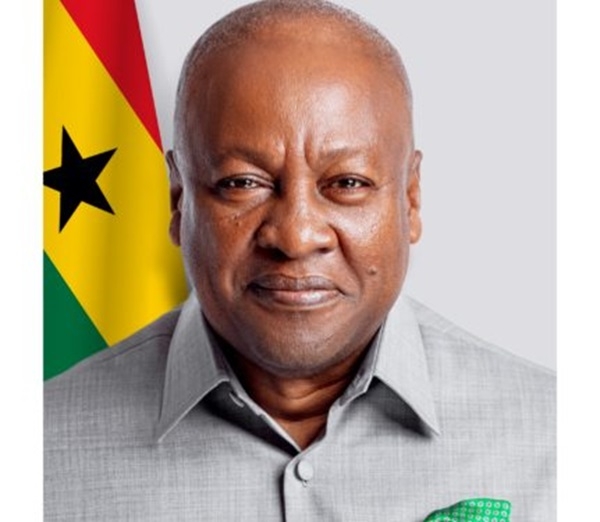 John Mahama
John Mahama
The concept of dual citizenship has been a topic of debate in Ghana, with many Ghanaians in the diaspora calling for a change in the country's laws to allow them to participate in the country's governance.
The current law, specifically Article 94(2)(a) of the 1992 Constitution, bars Ghanaians with dual citizenship from becoming Members of Parliament (MPs).
This law has been in place for several years, and it has been a subject of controversy, with many arguing that it is discriminatory and limits the pool of potential candidates who could bring diverse perspectives and skills to the legislative body.
They noted that governance in the 21st century demands not only domestic experience but also a global outlook, which Ghanaians in the diaspora are uniquely positioned to provide.
They maintained that such perspectives would significantly enrich parliamentary debates and ultimately advance Ghana’s development agenda.
The concerns of the diaspora community come at a time when the governing National Democratic Congress (NDC), during the run-up to the 2024 general election, pledged to address what it considers discriminatory practices embedded in the Constitution.
Resetting the Ghana Manifesto 2024 of the NDC, particularly on page 162, the party promised to repeal the law that restricts dual citizens from holding key positions in Ghana, including that of Member of Parliament.
This promise highlights the party's commitment to modernising and broadening participation in Ghanaian governance.
The NDC argued that the law is outdated and inconsistent with modern democratic principles of inclusivity and equal participation in governance.
Currently, Article 8 of the 1992 Constitution, as amended, outlines broad restrictions that prevent dual citizens from holding certain positions such as Ambassador, High Commissioner, Secretary to the Cabinet, Chief of Defence Staff, and others.
While the NDC has proposed amendments to Article 8 to relax some of these prohibitions, Article 94(2)(a), which directly affects eligibility for Parliament, remains a sticking point.
Diaspora groups insist that the failure to address this particular provision would amount to a partial solution, leaving intact one of the most significant barriers to political participation for Ghanaians abroad.
In their appeal, they urged President Mahama and the NDC Majority in Parliament to honour the party’s manifesto commitment by moving quickly to repeal the law.
They stressed that such an action would not only fulfil a campaign promise but also signal a strong commitment to inclusivity, fairness, and modernisation of Ghana’s political system.
For them, allowing dual citizens to contest parliamentary elections would ensure that Ghana taps into the diverse talents and experiences of its global citizens, strengthening democracy and governance in the process.
The debate around dual citizenship in Ghana highlights the complexities of identity, nationality, and participation in governance.
While some argue that dual citizenship can create conflicts of interest, others see it as an opportunity for Ghanaians to engage with the global community and bring back valuable skills and knowledge.
The proposed changes to the law have sparked a national conversation about the role of Ghanaians in the diaspora in the country's development.
It has also raised questions about the criteria for citizenship, the rights and responsibilities of citizens, and the need for a more inclusive and representative political system.
Ultimately, the decision to repeal or retain the law will have significant implications for Ghana's governance and its relationship with its diaspora community.
Despite these concerns, many countries allow dual citizens to hold public office, and Ghana could learn from their experiences.
The country's laws and policies should be designed to promote the interests of all Ghanaians, regardless of their citizenship status.
The NDC's promise to repeal the law is a step in the right direction, and it has the potential to promote greater inclusivity and diversity in Ghana's governance.
It is now up to President Mahama and the party to honour this commitment and work towards creating a more representative and effective political system.
Source: classfmonline.com/Cecil Mensah
Trending News

Chief of Staff urges support for MiDA CEO during inauguration of board
14:20
Jean Mensa is Accra-based EC commissioner, never travelled outside Accra-Bernard Mornah
09:30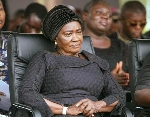
Vice President calls for unity and sober reflection in wake of national tragedy
05:32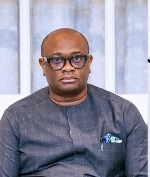
Gov't announces full military burial service for helicopter crash victims
12:51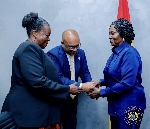
Vice President reaffirms Ghana–UN partnership, highlights women’s bank initiative
13:37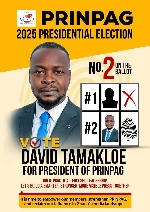
PRINPAG holds elections today, David Tamakloe tipped to lead Association
08:13
Oti: Fuel tanker accident at Asukawkaw market claims four lives, injures 14
16:49
V/R: Business owners count losses as fire ravages shops near Ho Tech Uni
14:32
A/R: Barekese youth petitions Otumfuo to probe chief over alleged galamsey involvement
12:37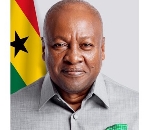
Amnesty: Wife of jailed former MASLOC official cries foul over delayed appeal process
06:48




